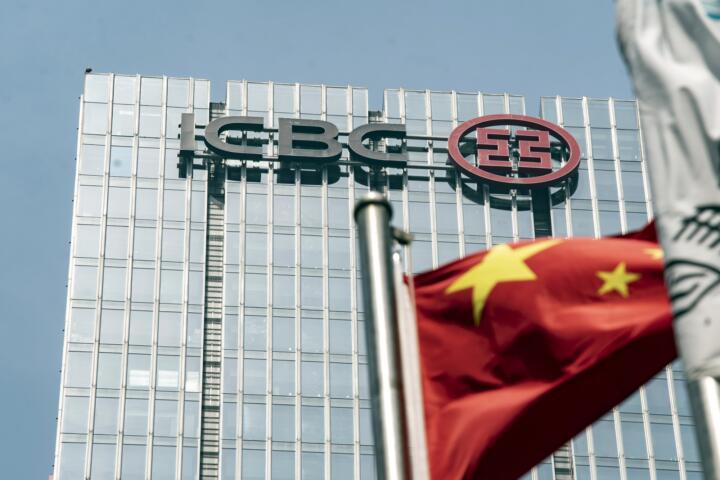The U.S. division of the Industrial & Commercial Bank of China (ICBC) encountered a significant cyberattack on Thursday, rendering it incapable of processing substantial volumes of US Treasury trades. Entities responsible for settling these transactions quickly disconnected from the affected systems, prompting ICBC to resort to unconventional means for settlement. As reported by Bloomberg, ICBC had to transmit the required settlement details to relevant parties via a messenger carrying a thumb drive, a hasty move aimed at mitigating the impact of the attack.
Attributed to the notorious Lockbit criminal gang with ties to Russia, the cyberattack stirred immediate disruption in the financial landscape. Market-makers, brokerages, and banks were compelled to reroute trades, with uncertainty prevailing regarding when normal access would be restored. The U.S. unit of ICBC, as of its most recent annual filing with U.S. regulators in 2022, reported assets amounting to $23.5 billion.
ICBC acknowledged the cyberattack, confirming the occurrence of a ransomware incident a day earlier that disrupted systems at its ICBC Financial Services unit. The bank asserted that it had successfully isolated the affected systems, clarifying that neither its head office in Beijing nor its other overseas units, including the New York branch, were impacted. In response to the attack, ICBC’s Beijing headquarters engaged in urgent meetings with the bank’s U.S. division, discussing the next steps and evaluating the impact. There were reports suggesting that ICBC might seek assistance from China’s Ministry of State Security to address potential threats to its other units.

This attack on the world’s largest bank serves as a stark warning to financial institutions in Nigeria, urging them to enhance their security infrastructure. In recent times, Nigerian commercial banks and fintechs have suffered substantial financial losses due to cyberattacks. Infostride News recently reported that three fintechs lost over N5 billion to hackers in the first eight months of the year, and cases of hacks and frauds are on the rise within the ecosystem.
The situation in Nigeria is becoming increasingly complex, with some of the heists involving members of staff from the targeted fintechs. Commercial banks are not immune, facing losses to hacks and frauds, although many such incidents remain undisclosed. According to the Q2 2023 Fraud and Forgeries report from FITC, commercial banks in Nigeria incurred a total loss of N5.79 billion to fraud activities in the quarter, marking a staggering 1,125.03% increase from the N472 million lost in Q1 2023.
This cyberattack on ICBC adds to a growing list of incidents targeting global companies. Just eight months ago, ION Trading UK, a relatively obscure company serving derivatives traders globally, fell victim to a ransomware attack that paralyzed markets, compelling trading shops to manually process deals. The incident raised concerns and heightened the vigilance of financial institutions.
Blockchain analytics firm Chainalysis reported a significant increase in ransomware payments, reaching approximately $500 million by the end of September, marking a nearly 50% rise from the same period the previous year. Corvus Insurance noted a 95% surge in ransomware attacks in the first three quarters of the current year compared to the same period in 2022.
Recalling the cyberattack on the New Zealand Stock Exchange in 2020, which led to severe traffic throttling and the inability to post critical market announcements, it was later revealed that over 100 banks, exchanges, insurers, and other financial firms worldwide were simultaneous targets of Distributed Denial of Service (DDoS) attacks. These incidents collectively underscore the escalating threats faced by financial institutions on a global scale, emphasizing the urgent need for robust cybersecurity measures.
Support InfoStride News' Credible Journalism: Only credible journalism can guarantee a fair, accountable and transparent society, including democracy and government. It involves a lot of efforts and money. We need your support. Click here to Donate
